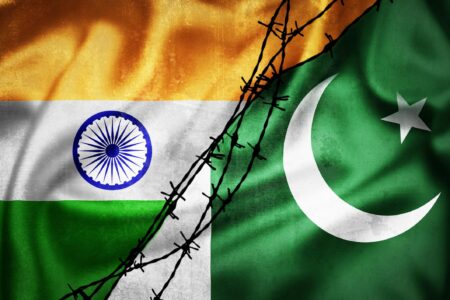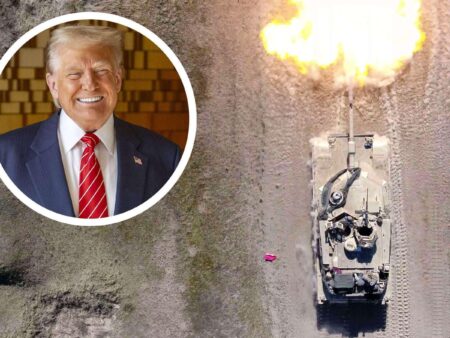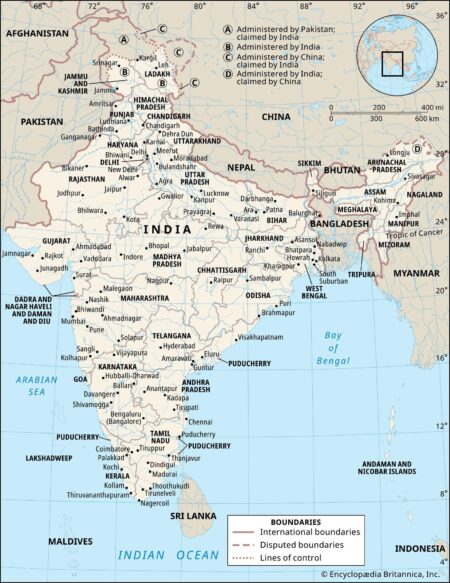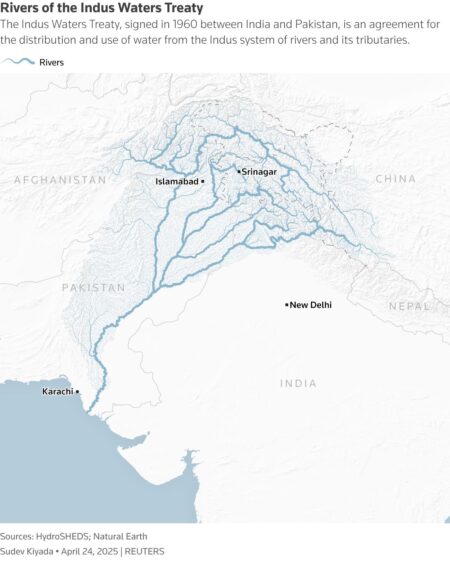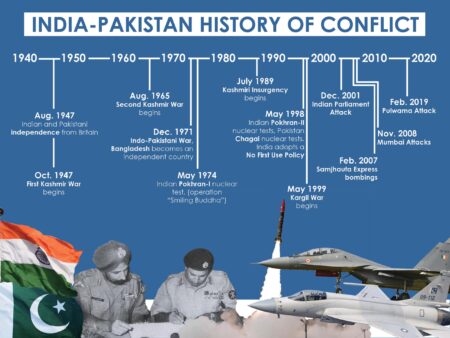Pakistan’s minister revealed that India has firmly rejected any US involvement in Kashmir talks, insisting the issue remains strictly bilateral. This declaration highlights the persistent tensions and complex diplomatic challenges between the two neighboring nations
Browsing: Pakistan
India and Pakistan face complex challenges as stateless communities remain caught in the crossfire of ongoing political tensions. These “stateless sisters” bravely endure an unending struggle for identity and rights, living in the shadows of a conflict that has spanned decades
In a recent statement, former President Donald Trump boldly restated his claim that seven Indian jets were shot down during the India-Pakistan conflict. This striking assertion has sparked a surge of reactions amid rising regional tensions
The US has unveiled that it monitors India and Pakistan “every single day” amid escalating regional tensions. This constant vigilance aims to manage conflicts and foster stability throughout South Asia, officials told NDTV
Flash floods have tragically claimed over 280 lives across India and Pakistan, forcing thousands to flee their homes in a desperate race for safety. Rescue teams are battling the clock amid relentless downpours and widespread devastation
India sharply condemned the Pakistan army chief’s reported nuclear remarks as reckless “sabre rattling,” calling for calm and restraint amid rising tensions. New Delhi stressed the urgent need for dialogue, warning that such provocative statements risk destabilizing the entire region
The US has once again highlighted former President Donald Trump’s pivotal role in advancing peace between India and Pakistan, firmly reaffirming their stance amid ongoing regional tensions, NDTV reports
India has strongly condemned the recent China-Pakistan-Afghanistan meeting, expressing deep concerns over the expanding reach of the CPEC. New Delhi is firmly committed to keeping a “constant watch on all developments” in the region, underscoring its heightened vigilance and strategic determination
Former U.S. President Donald Trump’s renewed focus on Pakistan has prompted India to reassess its strategic ties with China, highlighting the shifting power dynamics that are redefining South Asia’s geopolitical landscape, Reuters reports
India has significantly increased its acquisition of drones and air defense systems following recent aerial skirmishes with Pakistan, enhancing its surveillance and combat strength amid rising regional tensions, defense officials reveal
Pakistan’s Foreign Minister Bilawal Bhutto delivered a powerful warning to India, demanding a fair and equitable sharing of the Indus River waters. He warned that should India refuse to cooperate, Pakistan may be compelled to take full control over all six rivers covered by the Indus Waters Treaty
The UK and India have kicked off new talks aimed at strengthening their counter-terrorism collaboration following Pakistan’s recent ceasefire announcement, Reuters reports. Both nations are determined to enhance their security alliance as they join forces to foster enduring peace and stability across the region
India’s suspension of the Indus Water Treaty has triggered a severe water crisis in Pakistan, wreaking havoc on agriculture and daily water supplies, NDTV reports. This daring action escalates the already tense conflict between the neighboring countries over their shared river resources
At a recent Asian summit, Europe firmly resisted US proposals, showcasing starkly contrasting approaches. Meanwhile, tensions flared as India and Pakistan clashed once more, bringing ongoing regional hostilities into sharp focus, Reuters reports
India has embarked on a vibrant global charm offensive, aiming to reshape its international image amid recent tensions with Pakistan. This ambitious campaign is designed to strengthen diplomatic ties and attract investment, all while skillfully navigating a landscape marked by growing regional uncertainty
Former President Donald Trump proudly highlighted his greatest accomplishment: averting a potential nuclear conflict between India and Pakistan by championing increased trade between the two countries, according to a statement reported by The Hindu
China’s quiet stance on arms shipments to Pakistan stands in stark contrast to India’s bold showcase of military power, underscoring escalating regional tensions as New Delhi ramps up its defense strategy amid shifting geopolitical landscapes
As tensions soar between India and Pakistan, fears grow over the possibility of a conflict spiraling into a full-scale war. Both nations are ramping up their military strength, while diplomatic relations continue to fray. The world watches with bated breath, anxious about what might unfold.
India is weighing a bold and contentious strategy to cut back on Pakistan’s water supply via an ambitious new project on the Indus River. If this plan moves forward, it could significantly heighten tensions between the two nations, which are already grappling with deep-rooted conflicts over vital water resources.
India is gearing up to champion international financial measures targeting Pakistan, as revealed by a reliable source. This strategic move underscores the rising tensions between the two nations, with India actively seeking global backing to tackle pressing issues related to terrorism financing.


